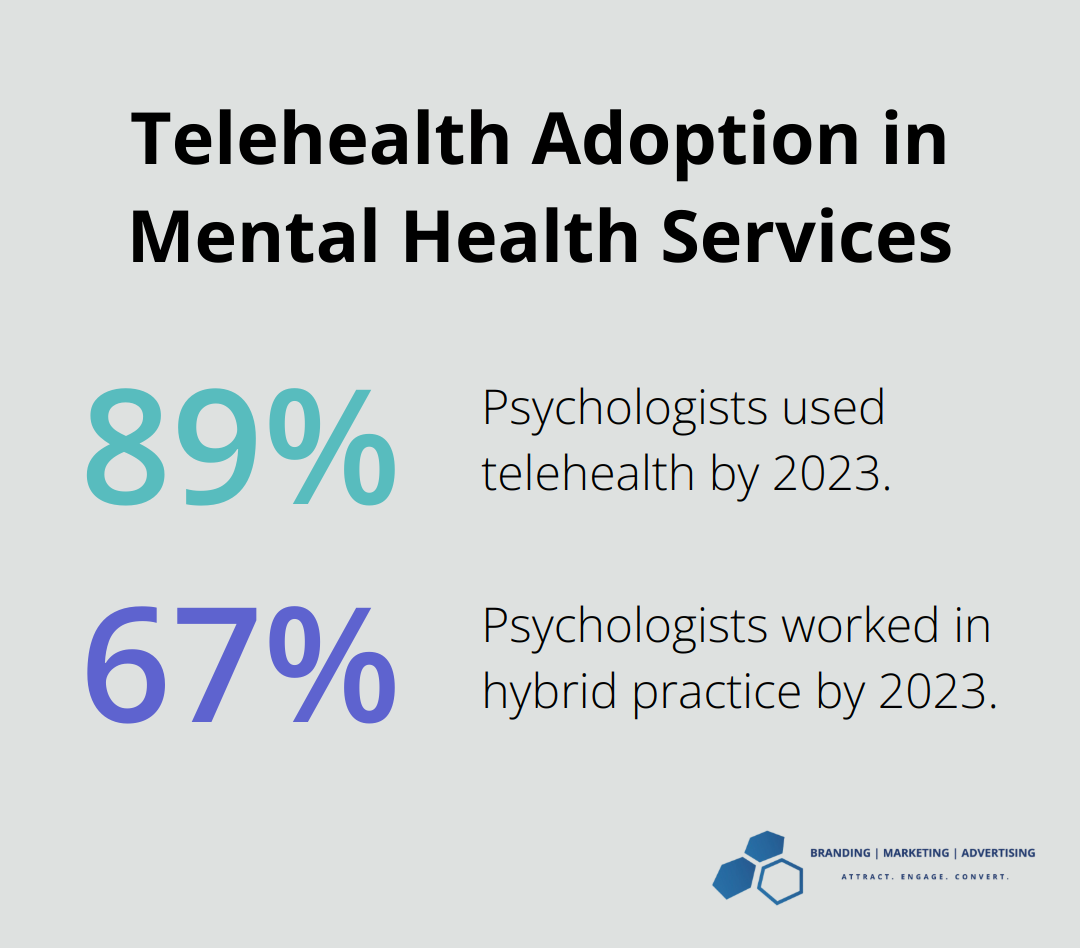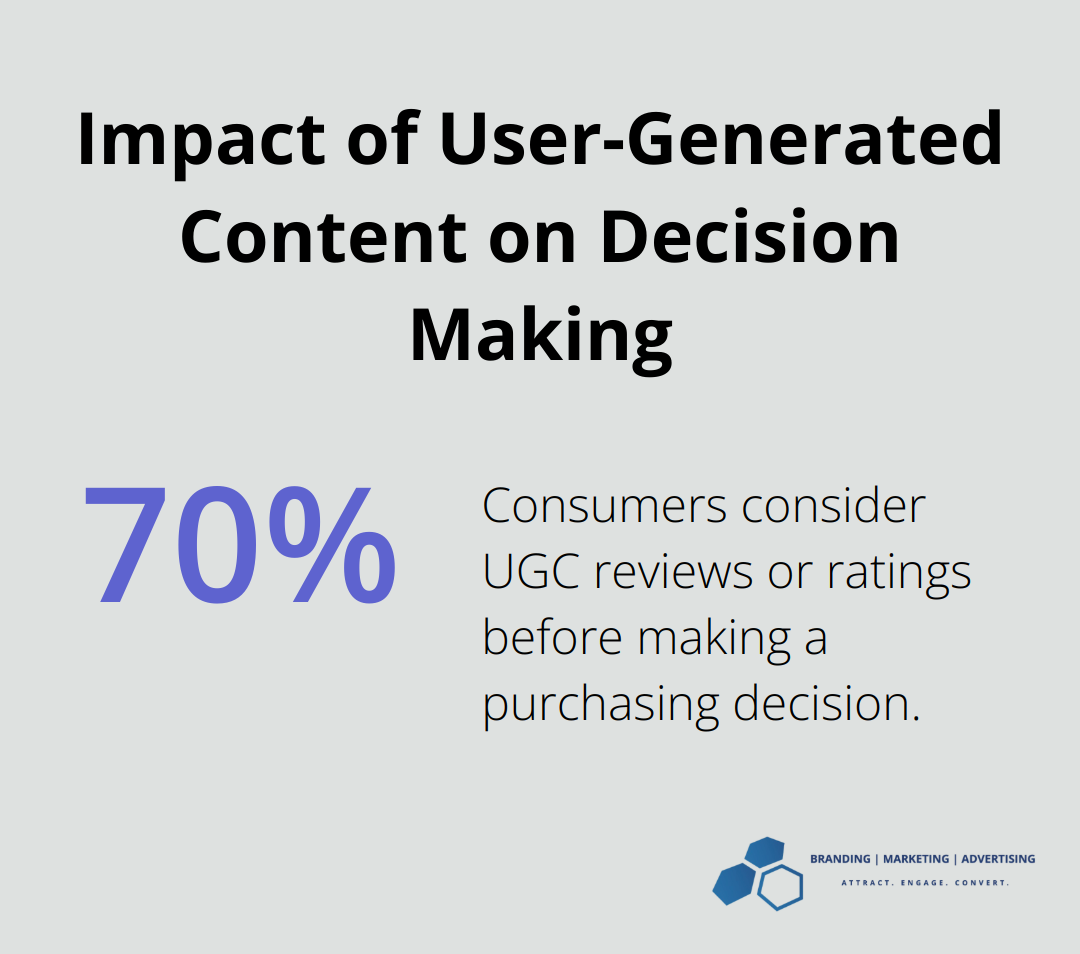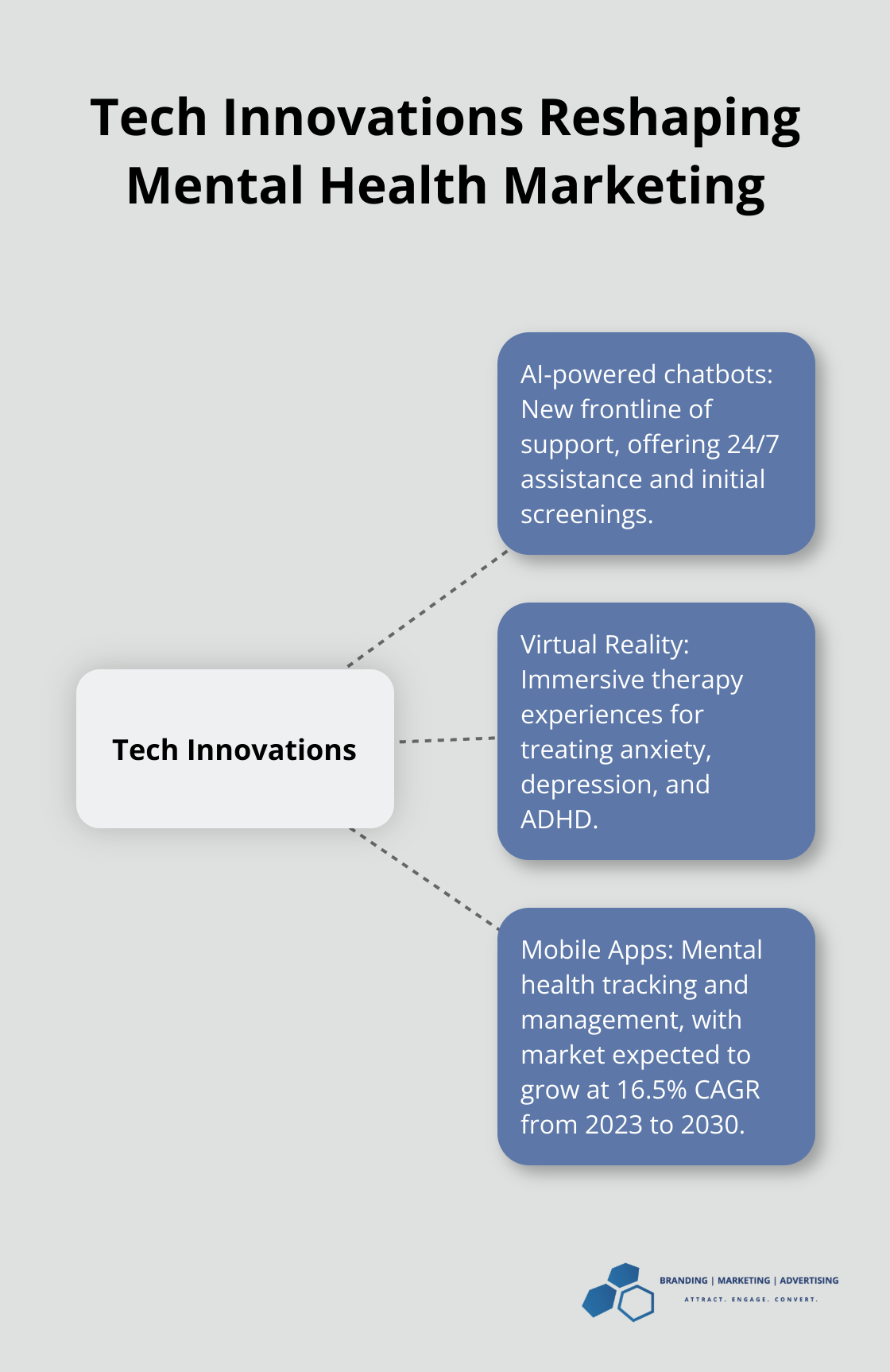Mental Health Marketing: Top Conference Insights
At Branding | Marketing | Advertising, we recently attended a groundbreaking mental health marketing conference that shed light on the latest trends and strategies in this rapidly evolving field.
The event brought together industry leaders, healthcare professionals, and marketing experts to discuss innovative approaches to mental health promotion and service delivery.
This blog post will explore the key insights gained from the conference, covering topics such as destigmatization campaigns, digital-first strategies, and cutting-edge technologies shaping the future of mental health marketing.
What Are the Latest Mental Health Marketing Trends?
At the recent mental health marketing conference, we at Branding | Marketing | Advertising (BMA) identified several key trends that are reshaping the industry. These insights offer valuable guidance for mental health professionals and marketers who want to make a meaningful impact.
The Power of Destigmatization Campaigns
One of the most prominent trends we observed is the rise of destigmatization campaigns. These initiatives normalize conversations about mental health and challenge societal misconceptions. The National Alliance on Mental Illness (NAMI) reported that their StigmaFree campaign reached over 65 million people in 2022, which demonstrates the growing appetite for open dialogue about mental health.
To implement this trend effectively, you should partner with influencers or public figures who are open about their mental health journeys. This approach can significantly boost engagement and reach. For example, when singer Selena Gomez spoke about her bipolar disorder diagnosis, it led to a 1,000% increase in Google searches for “bipolar disorder” (according to Google Trends data).
Embracing Digital-First Approaches
Another key trend is the shift towards digital-first approaches in mental health services. A study by the American Psychological Association found that by 2023, 89% of psychologists used telehealth, with 67% working in hybrid practice. These findings suggest telehealth, especially as part of hybrid practice, is becoming increasingly prevalent in mental health services.

To capitalize on this trend, mental health providers should invest in user-friendly telehealth platforms and mobile apps. It’s important to ensure these digital tools are secure and HIPAA-compliant. Additionally, creating engaging online content such as webinars, podcasts, or interactive workshops can help attract and retain clients in the digital space.
Personalization Through Data-Driven Strategies
The conference also highlighted the growing importance of personalized, data-driven marketing strategies in the mental health sector. According to a study by Accenture, 91% of consumers are more likely to shop with brands that provide relevant offers and recommendations.
To implement this trend, you should use AI-powered tools to analyze user behavior and preferences. This data can help tailor your marketing messages and service offerings to individual needs. For instance, you could segment your email list based on specific mental health concerns and send targeted content and resources to each group.
At BMA, we understand the importance of staying ahead of these trends. Our team of experts can help you implement these strategies effectively, ensuring your mental health services reach and resonate with your target audience.
The key to success in mental health marketing lies in authenticity, empathy, and a genuine commitment to improving people’s lives. By aligning your marketing efforts with these values and leveraging the latest trends, you can make a significant impact in the mental health space while growing your practice or organization.
Now that we’ve explored the latest trends in mental health marketing, let’s move on to discuss effective communication strategies for mental health brands. These strategies will help you put these trends into practice and connect more deeply with your audience.
How Can Mental Health Brands Communicate Effectively?
At the recent conference, we identified several key strategies that can help mental health brands connect with their audience on a deeper level.
Build Trust Through Authentic Messaging
Authenticity is paramount in mental health marketing. Trust is even more critical in the mental health sector.
To build this trust, be transparent about your services, qualifications, and treatment approaches. Share real stories from your team and clients (with their permission, of course). If you’re a therapist, consider sharing your own experiences with mental health challenges. This vulnerability can create a powerful connection with potential clients.
Harness the Power of User-Generated Content
User-generated content (UGC) is a powerful tool in mental health marketing. According to a survey, 70% of consumers will consider UGC reviews or ratings before making a purchasing decision. In the mental health sector, this could translate to choosing a therapist or mental health app.

Encourage your clients to share their experiences through testimonials, reviews, or social media posts. You could create a hashtag campaign encouraging people to share their mental health journey. Always prioritize privacy and get explicit consent before sharing any client stories.
Reach Your Audience Where They Are
A multichannel approach is essential for reaching diverse audiences. Different demographics prefer different platforms, and your marketing strategy should reflect this diversity.
For younger audiences, platforms like TikTok and Instagram are effective. For professional audiences, LinkedIn might be more appropriate. Email marketing remains effective across age groups, with an average ROI of $42 for every $1 spent (according to the Data & Marketing Association).
Provide Value Through Educational Content
Educational content establishes your brand as a trusted authority in mental health. Create blog posts, videos, or podcasts that provide valuable information about mental health topics. This not only helps your audience but also positions your brand as a knowledgeable and caring resource.
You could create a series of blog posts about different therapy techniques, or a video explaining the science behind anxiety. This type of content not only attracts potential clients but also serves as a valuable resource for existing ones.
Effective communication in mental health marketing isn’t just about promoting services-it’s about creating a supportive community and contributing to the broader conversation about mental health. With the right approach, your brand can play a significant role in destigmatizing mental health issues and encouraging more people to seek the help they need.
As we explore the landscape of mental health marketing, it’s important to consider how innovative technologies are opening up new possibilities for reaching and supporting individuals in need of mental health services. Let’s examine some of these cutting-edge tools and their potential impact on the industry.
How Tech Innovations Reshape Mental Health Marketing
The mental health industry experiences a technological revolution, transforming marketing and service delivery approaches. Cutting-edge tools open new possibilities for reaching and supporting individuals in need of mental health services.

AI-Powered Chatbots: The New Frontline of Support
AI-powered chatbots revolutionize initial assessment and support in mental health. These intelligent systems show potential as tools to support the psychological health of health professionals by offering personalized and accessible interventions.
To implement this technology effectively, integrate a chatbot into your website or app. This can provide 24/7 support to users, answer common questions, and conduct initial screenings. It’s important to clearly communicate that the chatbot is not a replacement for professional help and to have clear pathways for users to access human support when needed.
Virtual Reality: Immersive Therapy Experiences
Virtual Reality (VR) opens new frontiers in therapy and treatment. Research results indicate that VR shows promising outcomes in the diagnosis, treatment, and rehabilitation of anxiety, depression, and ADHD.
If you consider incorporating VR into your practice, identify specific therapeutic goals that VR could address. You could use VR to help clients with phobias gradually face their fears in a safe, controlled environment. Provide thorough training for your staff and clear instructions for clients to ensure effective and safe use of the technology.
Mobile Apps: Mental Health in Your Pocket
Mobile apps transform mental health tracking and management. According to a report by Grand View Research, the global mental health apps market size was valued at $4.2 billion in 2022 and is expected to grow at a compound annual growth rate (CAGR) of 16.5% from 2023 to 2030.
To tap into this trend, develop a mobile app that complements your services. This could include features like mood tracking, guided meditation exercises, or appointment scheduling. Prioritize user privacy and data security, especially when dealing with sensitive mental health information.
Implementing Tech Innovations Effectively
Implementing these technologies requires careful planning and execution. Navigate this complex landscape to leverage these innovations effectively while maintaining the human touch that’s so important in mental health services.
Mental health providers can extend their reach, improve accessibility, and offer more personalized support to those in need by embracing these technological advancements. These innovations will play an increasingly important role in shaping the future of mental health marketing and service delivery.
For more insights on leveraging technology in healthcare marketing, check out our blog posts on mastering healthcare social media marketing, top healthcare marketing companies, healthcare marketing trends, and healthcare marketing strategies.
Final Thoughts
The Mental Health Marketing Conference we attended revealed groundbreaking trends in the industry. Destigmatization campaigns, digital-first approaches, and data-driven personalization strategies emerged as key drivers of change. These insights underscore the importance of authenticity and innovation in mental health promotion and service delivery.
Effective communication and technological advancements shape the future of mental health marketing. Building trust through authentic messaging and leveraging user-generated content are essential for reaching diverse audiences. AI-powered chatbots, virtual reality applications, and mobile apps (offering exciting possibilities for extending reach and improving accessibility) transform how we approach mental health support.
The mental health marketing landscape will continue to evolve rapidly. Marketers and mental health professionals must stay agile and embrace new technologies while maintaining a human-centered approach. Branding | Marketing | Advertising can assist you in developing effective marketing strategies tailored to the unique needs of the mental health sector.












